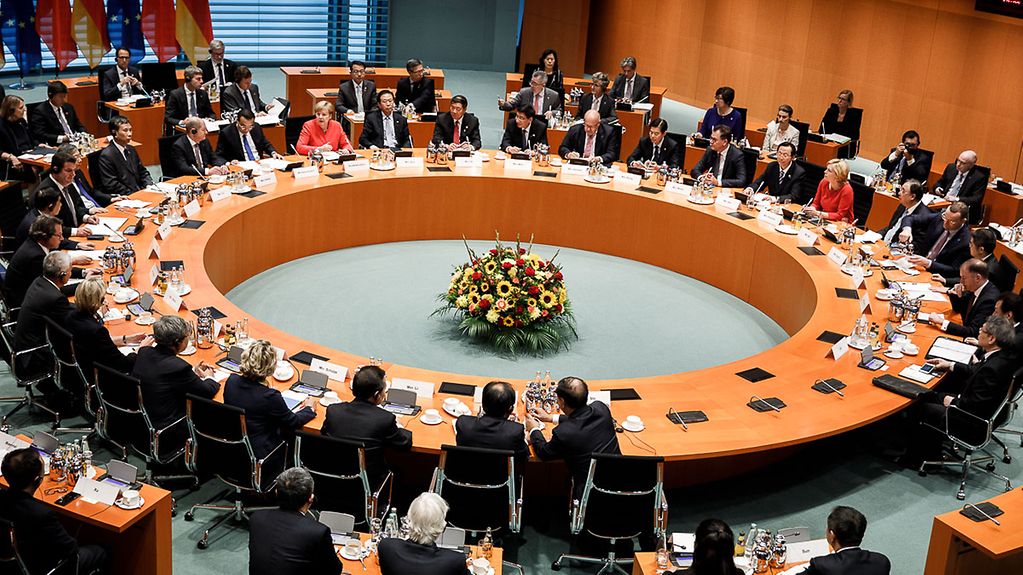Government consultations with China
At the fifth Sino-German government consultations in Berlin, Chancellor Angela Merkel and Prime Minister Li Keqiang have agreed to cooperate even more closely. The delegations signed over 20 government and commercial agreements.
2 min reading time

Sino-German government consultations. "We believe in multilateralism on trade issues as in other areas," said Angela Merkel.
Photo: Bundesregierung/Denzel
Chancellor Angela Merkel stressed that the signing of 22 government cooperation arrangements and business agreements clearly illustrates "that China is not only paying lip service to opening up its markets, but that words are being followed by action".
"We have broken new ground," declared Angela Merkel. In the field of economic cooperation, for instance, an investment by BASF illustrates that there are new opportunities to invest in China apart from joint ventures. German businesses can now invest and hold a stake of over 50% in China.
China is now Germany’s most important trading partner outside Europe, with a volume of trade totalling 186 billion euros.
Affirmation of commitment to multilateral global order
In view of the enormous challenges, both sides reaffirmed their commitment to fair and free trade on the basis of a rules-based global order. "On trade issues as in other fields we trust in multilateralism," declared the Chancellor.
That is why their talks also looked at equal access to each other’s markets. "I asked for understanding that we need a certain balance," she underscored.
Agreements
The Chancellor pointed to two important agreements in the economic and technology sector: firstly, a cooperation arrangement in the field of autonomous driving, which is strategically important for future mobility, and secondly the investment of a Chinese company in battery production in Thuringia. "This is a new step for Germany, and good news for the state of Thuringia," said Angela Merkel.
Human rights dialogue in autumn
In addition to the economic and business sector, more than 70 new discussion formats have now been established between Germany and China. A human rights dialogue is scheduled for this autumn.
During her talks with Prime Minister Li Keqiang, Angela Merkel advocated good working opportunities for German non-governmental organisations, especially the political foundations. The Chinese Prime Minister, she said, had pledged to find a satisfactory solution within the framework of China’s NGO Act.
In addition, the two sides discussed the conclusion of an agreement on legal cooperation, which the German government would like to see as soon as possible.
Angela Merkel reaffirmed how important the cyber dialogue with China is - both in the field of security and in the field of data sharing for industry 4.0 (the digitalisation of traditional manufacturing).
Within the framework of the government consultations, the two sides signed agreements in the health and agricultural sector on Monday, as well as numerous business cooperation arrangements. They also agreed to cooperate on social issues, on development cooperation with third states, and on opening up financial markets. Other agreements related to the field of dual vocational training.










